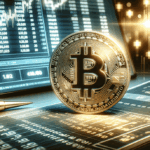I Will discuss the most recent Bitvalue crypto P2P restriction is the purpose of this article.
The new regulation aims to improve security and compliance in peer-to-peer trading by putting stricter verification processes and transaction limits in place.
They aim to protect users from fraud and create a safer market for trading.
What is the Latest Bitvalue Crypto P2p Restriction
The most recent Bitvalue crypto P2P limitation is meant to increase security and compliance in peer-to-peer trade.
This measure aims to guard against fraud and make the trading environment safer by enforcing stricter verification procedures coupled with transaction limits.
This rule shows continued attempts to balance innovation and user protection in the changing world of cryptos.
KYC Requirements
To buy on Bitvalue’s P2P, the user must pass the Know Your Customer (KYC) check by providing identification and proof of address.
Transaction Limits
There is a restriction on the amount of cryptocurrency that can be traded in one transaction and daily transactions. These limits are different for various verification levels of the user.
Payment Methods
Peer-to-peer payments are only accepted through certain means, including bank transfers and specific e-wallets.
Geographic Restrictions
Some geographical areas have limited or prohibited P2P trading due to regional regulations.
Security Measures
Buyers’ and sellers’ safety is paramount; hence, more security measures have been introduced, such as two-factor authentication (2FA) and escrow services.
Fee Structure
Depending on the category of transaction as well as the type of currency, Bitvalue charges fees for its P2P transfer service.
Bitvalue Crypto P2P Platform
BitValve is a decentralized (P2P) platform for digital assets exchange that allows users to purchase and sell various cryptocurrencies among themselves. Here are some of the main features of BitValve:
A Wide Variety Of Payment Options: Users can trade with more than three hundred payment options ranging from bank transfers, PayPal, and Western Union.
Global Reach: This means that you can easily trade in cryptocurrencies irrespective of your location.
Safety: BitValve is a secure escrow, ensuring both parties complete their trades.
Privacy enables anonymous trading, which greatly benefits those who value their privacy.
Why and when to use a Peer to Peer crypto Exchange?
P2P Crypto Exchange Use an example of a decentralized marketplace, and that’s what using a P2P crypto exchange feels like, where guys are each with their offerings and requirements.
Here are some reasons to use peer-to-peer exchanges and the cases in which it might be most effective.
Social Impact
You can feel part of a community and support by using such type of platforms for your needs in cryptocurrency trading. However, if you enjoy direct exchange with other traders and love the social side of trading, you may prefer P2P exchanges.
Unusual Coins And Tokens
Traditional exchanges do not usually offer access to these many different digital currencies. This is why some platform allows users to trade rare coins or tokens which will not be available elsewhere.
In case your interest is buying rare digital assets so that the portfolio does not have all eggs in one basket, peer-to-peer counts like the best solution.
Emerging Markets Reach
P2P exchanges can fill geographic gaps where banking isn’t so accessible. In areas where banking services may be complex, P2P platforms may provide a more viable avenue for people to invest in digital currencies.
Direct Control
Your ability to control your trades is enhanced when you use P2P exchanges. You get to decide how much you want to sell at what price, the payment methods accepted and how long it would take before delivery and payment are done immediately without any intermediaries.
It can benefit those who like being involved in every transaction decision during trading processes.
Minimizing Systemic Risks
There are instances where centralised exchanges have experienced system-wide breakdowns, causing significant threats towards your wealth due to hacking.
Therefore, no intermediary exists between buyers and sellers within these systems, allowing them to carry out deals directly through smart contracts instead of using escrow services offered by centralised entities.
Conclusion
To sum up, the limitations on Bitvalue’s P2P digital money trade indicate the ongoing difficulties and public supervision confronting decentralized finance.
At the same time as improved secrecy, asset control, and reduced dependence on intermediaries, P2P trading comes with several risks, including fraud and security vulnerabilities.
In this case, the measures imposed by regulators are intended to mitigate these risks by strengthening compliance, ensuring safer transactions and preventing users from falling victim to scams.
It is worth noting that finding a balance between innovation and regulation would play a pivotal role in creating a secure and robust market,










